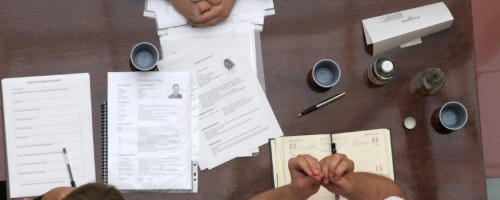Understand and Be Aware of Potential Conflict of Interest

A conflict of interest arises when a person has competing interests or loyalties are or potentially can be at odds with each other. A conflict of interest may cause a person to experience a struggle between diverging interests, points of view, or allegiances. Interests that can create conflict in an investigation include politics, family, friends, values and personal history.
One investigator refused to accept a case assignment because it paralleled his own experience. According to this investigator, his wife had breast cancer, was in a hospital, and had a horrible experience with a nurse. Referring to the investigation, he said, “I could have written this exact same complaint”. He felt a real allegiance with the complainant because of what he went through with his wife, who had died. And he felt he could not stay open-minded, so he did not want to be part of the case.
A political conflict of interest may arise simply because the investigator knows that a person is involved with a political party the investigator opposes. Or the conflict may be that the investigator and the interviewee have a mutual friend. Whatever the potential source of conflict, investigators must ask themselves if it may affect their ability to conduct a fair investigation. They need to look at their experiences and ask if they have a conflict-and if there might be a perception of conflict.
Investigators must declare potential conflicts, which can include situations as innocent as being former colleagues many years ago. It does not matter that the investigator and the other person were not close friends and did not see each other socially. If the associated amounted to working in the same department of a hospital and saying hello in the halls, the potential exists for a perceived conflict of interest, and the investigator must declare it. Everybody who has a stake in the process should have the ability to learn that such conflict might exist to afford them the opportunity to comment on the situation.
If an investigator has any doubt about having a conflict of interest, he or she should report it to the appropriate person within their agency or department. In these cases, an investigator needs someone else to helping to decide if there was if there is a conflict of interest-real or perceived-and how to deal with it. If the investigator decides to continue with the case and then has to testify, he or she must be prepared to be challenged on this issue.
Another type of potential conflict arises when an in-house investigator is assigned to investigate another in-house staff person or committee member. This can happen when an organization does not have the resources to go outside for an investigator, and someone has to investigate a colleague. If there is no other option, the organization must at least put procedures in place for dealing with the situation. Such procedures might include:
-
assigning a seasoned investigator to the matter
-
declaring the circumstances to all stakeholders involved in the case
-
having a second investigator assigned as a peer reviewer
-
increasing the frequency of oversight of the investigation by management.
No matter what is done it will not be ideal and arguably the very effort to ensure there is no conflict in this situation may result in the case receiving “special treatment” in the eyes of some parties.
In some cases, investigators are accused of being bought and paid for. As a private investigator hired by regulatory bodies, I have many times been asked on the stand who is paying me. In one case, a defense lawyer asked another investigator who was paying his salary, strongly implying that the investigation was biased because only a “successful investigation” would ensure future employment. However, from an investigator’s point of view, a “successful investigation” is not the same as a “successful prosecution.” Success for an investigator uncovering the truth, not “winning” the case. Certainly, regulatory bodies want the truth. If an investigation reveals no evidence to support an allegation, the board takes no action, and the investigation is not a failure.
All of Benard + Associates workshops on investigation skills contain components on understanding and avoiding conflict of interest. Click here to view our upcoming workshops.

